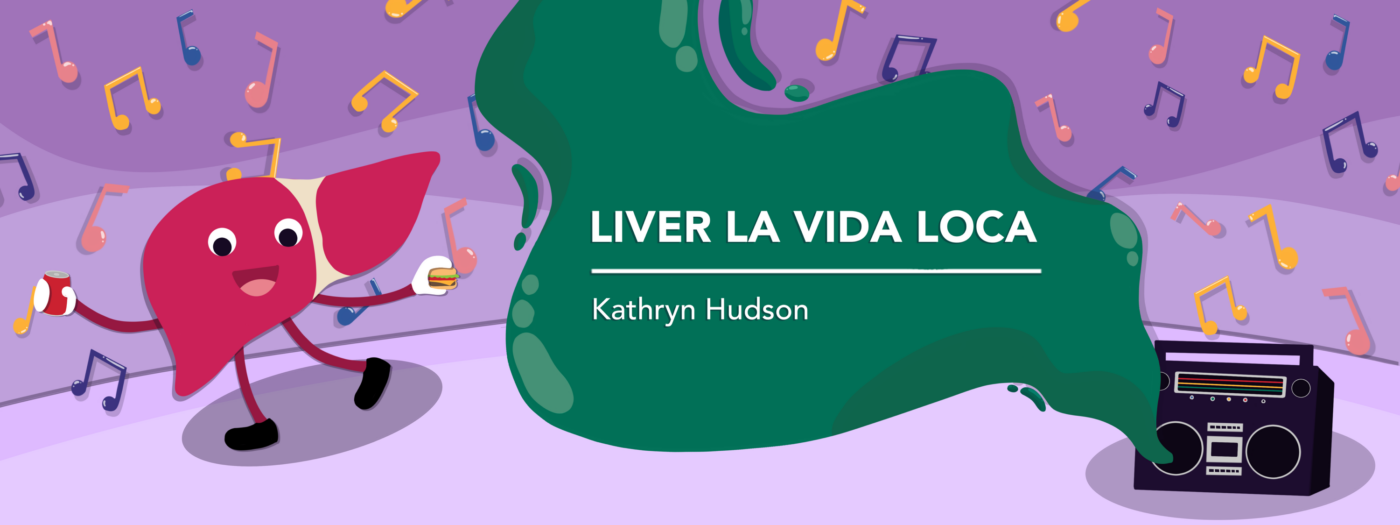Taking your liver to work: Managing MASH on the job
How this columnist supports her liver health after clocking in
Written by |

As I sat down to write this week’s column, my imagination flipped on its silly switch. I couldn’t help but picture a sick cartoon liver wearing a straw fedora, carrying a tiny briefcase in one hand (I know, livers don’t have hands!), and tucking a newspaper under its armpit on the way to work. Of course, we all take our livers with us wherever we go — but until I was diagnosed with metabolic dysfunction-associated steatohepatitis (MASH), I had no idea how much an ailing liver could mess with your job.
Living with MASH, a progressive form of fatty liver disease, is like riding a never-ending carousel of shifting symptoms. One day, you might feel a wave of nausea; the next, you’re battling brain fog that leaves you staring at your screen, trying to remember what you were doing.
Until you understand how MASH manifests in your body, it can be hard to connect the dots. That’s why it’s so important to stay informed about your condition and figure out how to fit your treatment into your daily life. After all, your liver is counting on you.
One of the most disruptive symptoms I’ve experienced is hepatic encephalopathy, a serious complication of liver disease caused by high levels of toxins (like ammonia) building up in the brain. For me, it began with fatigue, slurred speech, and the inability to form clear thoughts — almost as if I were having a stroke. Blood work confirmed my ammonia levels were dangerously high, and I was prescribed two medications to manage it. Both worked, but let’s just say they kept me running in and out of the restroom all day. I assumed no one noticed. Then my boss took me aside.
Thankfully, he was kind and understanding. He made sure I had a private restroom on my floor and let me explain what was going on. Because we had a solid working relationship, I felt safe being honest. But not everyone will have that experience.
If you’re dealing with liver disease at work, it’s OK to be cautious when sharing medical information with your boss or human resources. If possible, ask around about your workplace culture before disclosing anything personal.
Supporting your liver health at work
When my liver disease first started getting worse, I also experienced persistent pain in my upper right abdomen, especially after eating sugary or fried foods. My youngest cat — who loves to jump on me and make biscuits — usually brings me comfort. But one day, her sharp little paws made my liver scream.
At work, I’d often feel pain flare up after group lunches, especially if the meal was greasy or rich. While I used to love fries, burgers, and heavy sandwiches, I slowly realized my diet had to change. That shift, difficult as it was, set me on a much healthier path.
I also never expected liver disease to impact my ability to work consistently. I was wrapping up a consulting job and looking for my next project when I suddenly landed in the hospital. I needed strong medications, fluids, and the blood of generous strangers who donated to help people like me. Most of my hospital stays last at least three days, sometimes longer. I’ve been incredibly lucky to work with bosses and clients who are supportive and compassionate.
The truth is, managing a liver disease like MASH is a job in and of itself — but it doesn’t have to keep you from doing the work you love. Supporting your liver health while maintaining your job can be as simple as:
- drinking plenty of plain water throughout the day
- taking medications on schedule
- choosing liver-friendly foods over tempting quick fixes.
It’s a balance. Some days are harder than others. But the more you understand how your liver impacts your energy, focus, and digestion, the better equipped you are to manage it at work.
So yes, whether it’s carrying a briefcase or wearing a fedora, your liver is showing up to the office with you. And with a little care, it might just clock in for a much longer shift.
Note: Liver Disease News is strictly a news and information website about the disease. It does not provide medical advice, diagnosis, or treatment. This content is not intended to be a substitute for professional medical advice, diagnosis, or treatment. Always seek the advice of your physician or other qualified health provider with any questions you may have regarding a medical condition. Never disregard professional medical advice or delay in seeking it because of something you have read on this website. The opinions expressed in this column are not those of Liver Disease News or its parent company, Bionews, and are intended to spark discussion about issues pertaining to liver disease.



JOHNSON DE LA ROSA
I HAVE MASH AND I AM FROM THE PHILIPPINES. PLEASE HELP US BY MAKING REZDIFFRA AFFORDABLE AND AVAILABLE IN ANY COUNTRY.